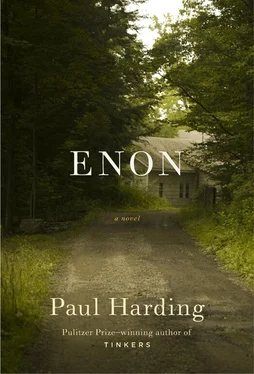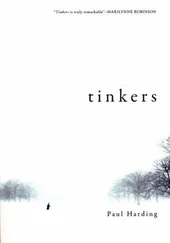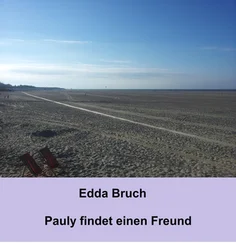Paul Harding - Enon
Здесь есть возможность читать онлайн «Paul Harding - Enon» весь текст электронной книги совершенно бесплатно (целиком полную версию без сокращений). В некоторых случаях можно слушать аудио, скачать через торрент в формате fb2 и присутствует краткое содержание. Жанр: Современная проза, на английском языке. Описание произведения, (предисловие) а так же отзывы посетителей доступны на портале библиотеки ЛибКат.
- Название:Enon
- Автор:
- Жанр:
- Год:неизвестен
- ISBN:нет данных
- Рейтинг книги:3 / 5. Голосов: 1
-
Избранное:Добавить в избранное
- Отзывы:
-
Ваша оценка:
- 60
- 1
- 2
- 3
- 4
- 5
Enon: краткое содержание, описание и аннотация
Предлагаем к чтению аннотацию, описание, краткое содержание или предисловие (зависит от того, что написал сам автор книги «Enon»). Если вы не нашли необходимую информацию о книге — напишите в комментариях, мы постараемся отыскать её.
Powerful, brilliantly written, and deeply moving Paul Harding has, in Enon, written a worthy successor to Tinkers, a debut which John Freeman on NPR called "a masterpiece." Drawn always to the rich landscape of his character's inner lives, here, through the first person narrative of Charlie Crosby (grandson to George Crosby of Tinkers), Harding creates a devastating portrait of a father trying desperately to come to terms with family loss.
Enon — читать онлайн бесплатно полную книгу (весь текст) целиком
Ниже представлен текст книги, разбитый по страницам. Система сохранения места последней прочитанной страницы, позволяет с удобством читать онлайн бесплатно книгу «Enon», без необходимости каждый раз заново искать на чём Вы остановились. Поставьте закладку, и сможете в любой момент перейти на страницу, на которой закончили чтение.
Интервал:
Закладка:
“These grapes are as big as apples.” I notice for the first time that she and the boy are standing in front of a yard to another house. The house is invisible, but I see that the near corner of a grape arbor is discernible beneath the canopy of elm behind the children. The details of the boy’s and the girl’s figures are mostly blurry, but now I see that each is holding what looks like a large, translucent, deeply colored purple apple. The girl holds her piece of fruit out, as if to give me a better look.
“It’s a grape,” she says. “I always think they should be heavier, like apples, but they’re not.”
Although I cannot see them, I can feel, almost as a pressure inside my chest, the weight of fist-sized grapes clustered on stems as thick as ropes in bunches the size of bodies hanging from the vines in the arbor. It must take a buck knife to cut them off and wheelbarrows to move them. When the grapes are ripe, Benjamin Conant, the man who owns the house and the arbor, and two of his neighbors, Jonah Fisk and William Dodge — Joe and Bill — harvest them. Benjamin sets a stepladder under the arbor and wriggles up into the vines. He cuts the clusters free with a whetted knife. The largest weigh close to sixty pounds. Joe and Bill stand beneath the grapes, holding between them a small, round mattress filled with goose down that Benjamin devised and sewed himself. When Benjamin cuts a stem, the cluster begins to sink. As it does, Joe and Bill position the mattress so that the cluster will lower onto it like an infant laid in a crib.
Just before he makes the final pull of the knife, Benjamin says, “Hup,” which signals the coming weight of the fruit. He draws the blade back and the grapes tear free from the vine and are delivered onto the pillowy mattress.
The men at either end of the mattress each bark out a terse, “Yep,” and spend a moment adjusting it to make sure the grapes are properly bedded. As he does every year during the hottest months, Benjamin has the men take the clusters of ripe grapes to an underground stone bunker in his backyard, in the coolness of which he has stored half a dozen one-hundred-pound blocks of ice, cut from Enon Lake the previous winter, in piles of sawdust. He has the men lay clusters of grapes over the blocks of ice and chills them for two days. Then he has the men bring the grapes out to his front yard, where most of the children and younger people of the village have gathered. The men hang the clusters of cold, nearly frozen grapes, spitwise, in the crooks of two upright poles. Benjamin Conant then makes a brief, explicitly religious speech.
He declaims, “Dear children, our righteous root has yielded fruit again! So long as our ground is good and the thorns do not choke it, the root shall not cease such yield, but each year become pregnant again with sweet bounty.”
Two elderly women who have stopped on their way to the Tea House and stand behind the children gasp a little at this reference to pregnancy. They and a number of other especially prim souls in the village find Benjamin Conant’s speeches impious. Perhaps it is because they associate grapes with paganism. But because he is such a civic treasure, they merely tut-tut and continue to listen.
When he has finished his invocation, Benjamin Conant invites the children to approach one by one, the littlest first, please, if they would like a cold, sugary, luscious grape. The children manage to order themselves and behave despite their excitement, and everyone who wants one receives a piece of the fruit after a brisk little ritual wherein the child asks, “May I have a grape, Mr. Conant?” and he answers, “Of course you may, my dear child,” and solemnly but with great pleasure selects a grape, unscrews it with a single twist of his callused hand, turns, and presents it to the boy or girl with a slight bow. The child says, “Thank you, Mr. Conant,” and bows or curtsies, according to custom, and returns to the general congregation.
The skins of the grapes are dark and too thick for most of the children to bite through, and taste bitter anyway. So each grape is peeled and the tannic skins tossed into a wheelbarrow to be carted off into Conant’s back meadow, to rot in what the children all find a mesmerizing and horrific wasp-covered pile. Before the older girls peel and eat their own grapes, they help the younger children peel theirs. The girl I think of as Kate peels the little boy’s grape. He takes the slick globe and bites at it. The blinding sun catches some of the grapes hanging from the spit and illuminates them with a dark green light beneath their purple skins. The children spit the pips into a pile. Some of the older boys start to see who can spit them farthest into the street, but Benjamin Conant puts a stop to that, insisting that spitting of any sort besmirches the village. The little boy with the girl I think of as Kate drops his grape. He gasps and picks it up. Half of the fruit is covered in grit. The other half is still clean and sweet, until the boy turns it around in his gunky hands to inspect it. He tries a bite, spits, and sobs. Kate turns to him and scolds him a little. She hands him the rest of her grape. I take a step toward the girl and the picture begins to flare out, like a sheet of photographic paper bathed too long in developer. The conscious thought of being on the couch with the washcloth on my face pierces the dream, and the image of the girl and boy and the grapes and Main Street, Enon, July 1890, bursts into white and disappears in the solvents of mere waking.
12
I PUSHED DEEPER INTO THE SHADE, FURTHER TOWARD THE BORDER between this life and what lies outside it, and became something closer and closer to a corpse myself. My hair was thin, my bones stuck out, and my skin stretched across my skull. I needed to be careful and not step over the boundary, because the thought that her own death caused her father’s suicide would be too awful for my daughter to bear. And I did not want the word I craved to hear from Kate when I met her there in the murk — murk to me, as a living person, trespassing in realms that might well prove to be brimming with a nutritious light not visible to our own, colloquial eyes — when I finally reached her on my tether concocted from the strongest medicines; when I might have only a split second before being yanked back up and landed into the bay of an ambulance or a hospital bed, at the surface of the waking world; I did not want the possibly single word she uttered to be No. I found myself weeping many times at the prospect of my daughter’s face cresting for a moment out of the gloom, looking directly into my eyes and smiling, and saying, in the half girl’s, half woman’s voice that I practiced every day to remember, Yes.
ONE MORNING IN LATE July I woke up and took a cigarette from a pack sitting on a dirty plate on the floor. I swiped around through the litter on the coffee table, trying to find a lighter. I found a box of matches on the floor, under the skirt of the couch. When I held a lit match to the cigarette in my mouth, I saw that my hand looked gray and withered. Some of my fingernails were long and grimy. Others I’d bitten down and spat on the rug. I realized that I must look like a castaway. I hadn’t bathed in a long time. I tried to figure out how long it had been; I couldn’t. The closest I could guess was five weeks. I must have changed my clothes sometime, though, I thought to myself, but I couldn’t recall having done that, either, although I did remember rummaging around in Susan’s closet and finding one of her old belts for my pants, which had gotten too loose to stay up on their own. Susan’s belt looked like it was forty years old, as if she must have bought it at a thrift shop. It was made of white leather and had a big, medallion-like buckle on it, with a fish that looked like it was swimming after its own tail and the word PISCES in block letters. The certainty that I looked terrible and the urge to see just how bad struck me at the same time, so I went into the bathroom to inspect myself in the mirror. At some time in the previous few weeks, I had draped a pillowcase in front of the mirror over the bathroom sink. I had also turned the full-length mirror so that it faced the wall. I think I had covered the mirrors because I had been embarrassed by how I leered at myself when I washed my hands or managed to brush my teeth before passing out late at night after I had taken so many pills or drunk a bottle of cough syrup with the usual whiskey. But that morning I wanted to see my actual appearance. I suppose I had some hope of being frightened into repentance.
Читать дальшеИнтервал:
Закладка:
Похожие книги на «Enon»
Представляем Вашему вниманию похожие книги на «Enon» списком для выбора. Мы отобрали схожую по названию и смыслу литературу в надежде предоставить читателям больше вариантов отыскать новые, интересные, ещё непрочитанные произведения.
Обсуждение, отзывы о книге «Enon» и просто собственные мнения читателей. Оставьте ваши комментарии, напишите, что Вы думаете о произведении, его смысле или главных героях. Укажите что конкретно понравилось, а что нет, и почему Вы так считаете.












